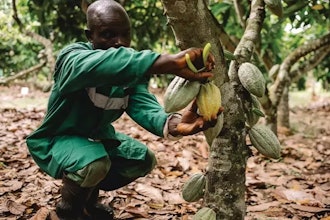PIERRE, S.D. (AP) — A South Dakota regulatory commission has abandoned its attempt to seek the assets of a sunflower seed company that owes farmers in South Dakota and North Dakota an estimated $4 million.
The Public Utilities Commission decided two weeks ago to seek control of the company's assets in the hope it would provide money to reimburse farmers who have not been paid for sunflowers they delivered to Anderson Seed Co.'s operation in Redfield.
But the commission decided to end the effort this week after learning there are no assets left in Redfield that could be seized. All grain at the facility has been sold, and a Canadian company has signed an agreement that will eventually allow it to buy the Redfield operation.
PUC Chairman Chris Nelson said Wednesday it appears there will be no money left to pay farmers after the proceeds of the sale of the Redfield facility are used to repay a bank loan secured by a mortgage on the property. Farmers who have not been paid for grain are unsecured creditors, meaning they get paid only after secured creditors.
"That doesn't mean there won't be some surprise down the line, but at this point it doesn't look likely," Nelson said of the prospects of farmers recovering the money owed to them.
The PUC has revoked Anderson Seed Co.'s license to buy grain in South Dakota and it still has the $100,000 bond posted by the company, which is based in Mentor, Minn.
The problem was discovered when farmers notified the commission a month or two ago that Anderson Seed had failed to pay them. The PUC estimates Anderson Seeds owes South Dakota farmers $2.6 million, and North Dakota officials have said farmers in that state have filed more than $1.4 million in claims against the company.
Legumex Walker Inc., a grain processor based in Winnipeg, Manitoba, recently bought Anderson Seed's North Dakota facilities, but not the plant located in Redfield. A Legumex official told the PUC this week that it has an agreement to purchase the Redfield operation after a study is done to determine if there are environmental problems at the site, built on top of a previous landfill.
In the meantime, the Redfield site has been transferred to a new Minnesota corporation, Binco Holding, because of the possibility of environmental problems. That transfer will protect other assets that could be used to pay creditors, said Anderson Seed's lawyer, Gary Leistico of St. Cloud, Minn.
Once the environmental review has been done and no problems have been found, the Redfield site can be sold to Legumex with the money going toward a secured loan held by US Bank and other secured creditors, Leistico told the commission. He said he doubts there will be any money left to pay farmers and other unsecured creditors.
Nelson said the PUC also decided that seeking control of Anderson Seed's assets in South Dakota would be a bad move because the state might wind up financially responsible if any environmental problems are found in Redfield.
One of the three PUC commissioners, Gary Hanson of Sioux Falls, has recused himself from the case because his son works for US Bank, which holds the secured loan on the Redfield facility. Nelson and commissioner Kristie Fiegen voted to end the commission's bid to seize Anderson Seed's assets.
Ray Martinmaas, a farmer from Polo, asked whether he could recover the $47,000 in sunflowers he delivered, but Nelson told him the grain is gone.
"''I'm trying to understand how to protect myself in the future because apparently no one else is," Martinmaas said.
Nelson told Martinmaas he and other farmers who have not been paid for sunflowers should consult with their lawyers. Some farmers who have not been paid by Anderson Seeds have already gone to court in an attempt to recover money, he said.
Nelson said farmers should take care to check out the financial condition of any company that buys their grain.
However, the commission will look into whether state laws covering grain buyers need to be changed to prevent a similar problem in the future, Nelson said.




















